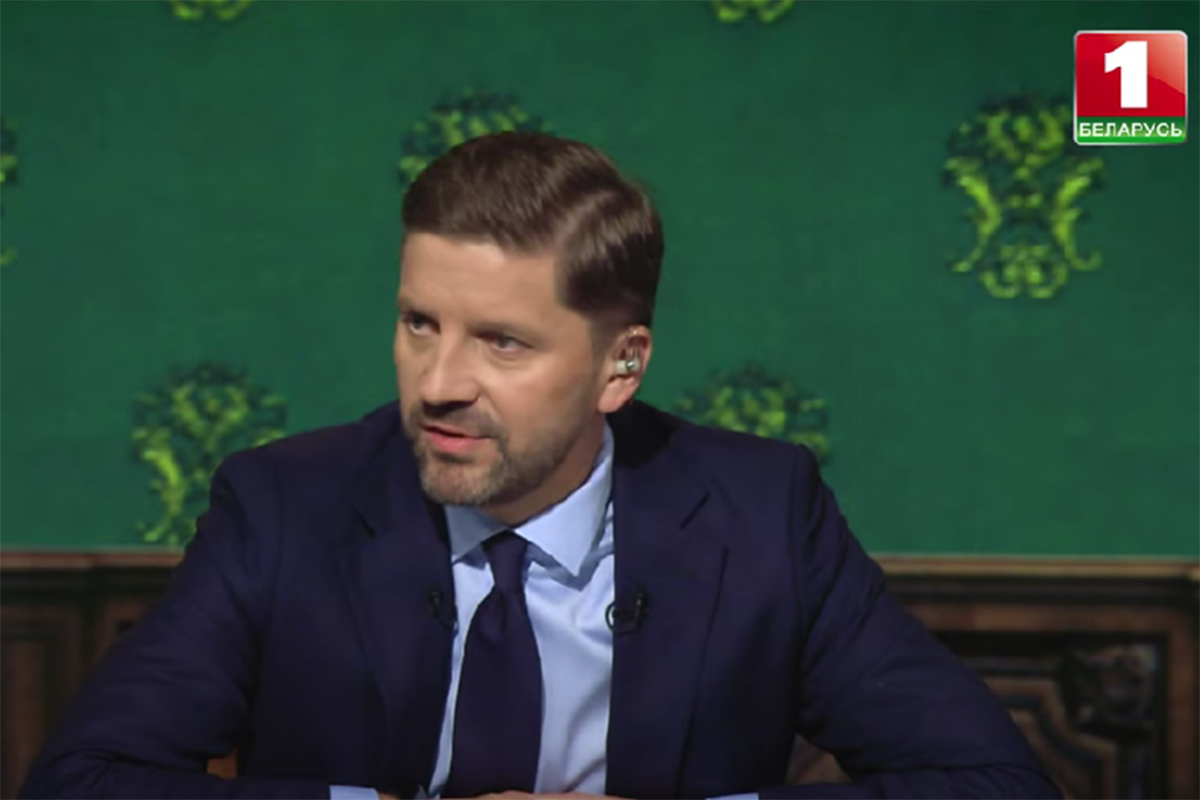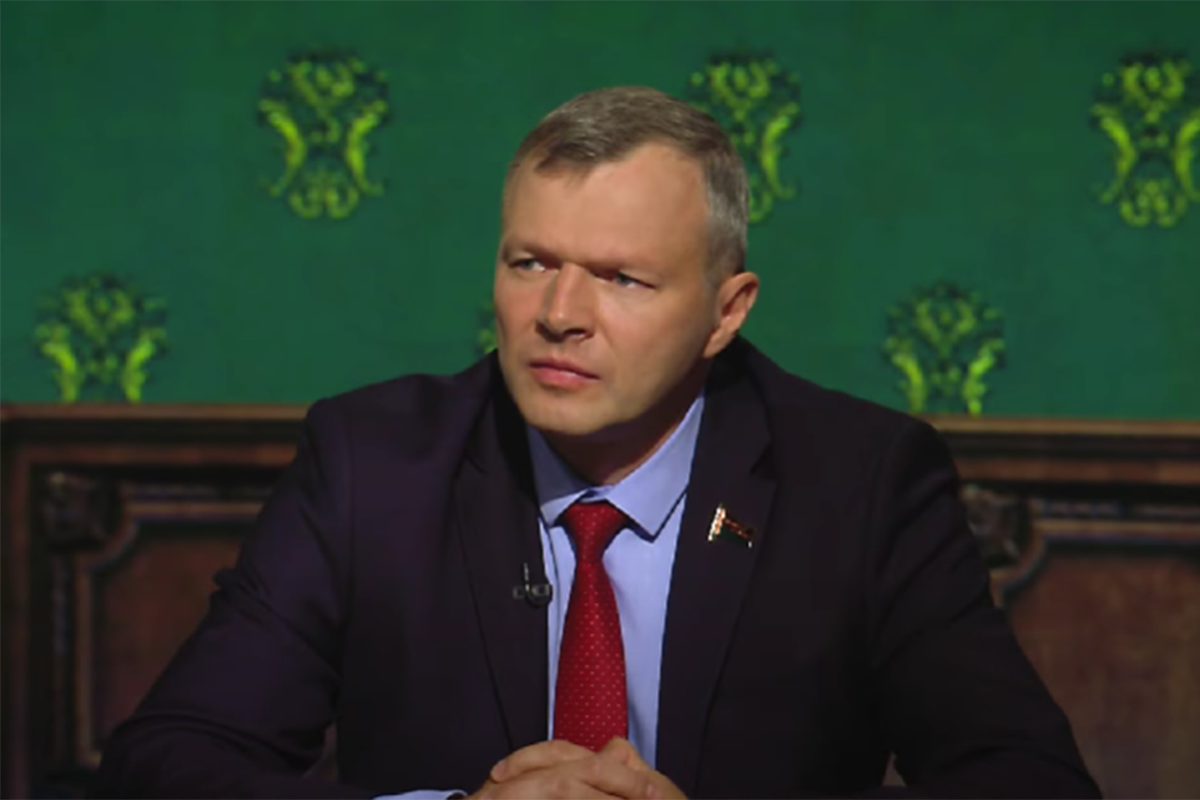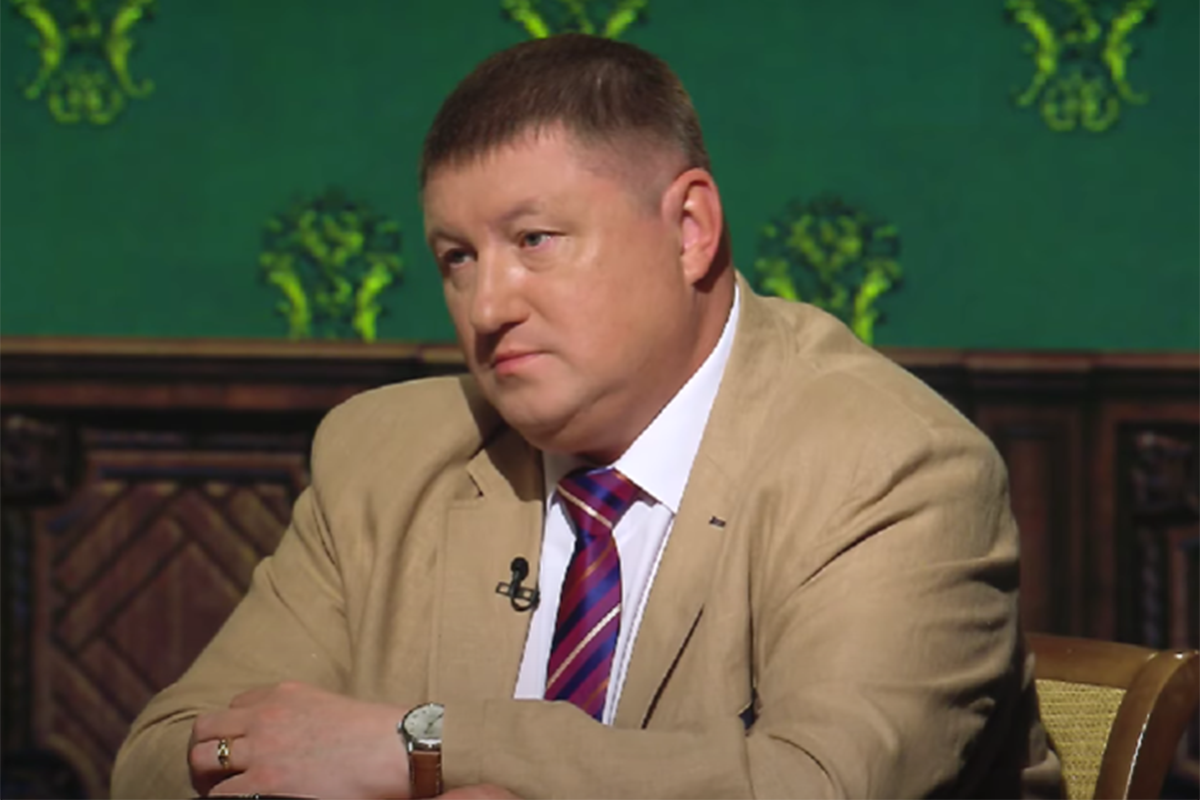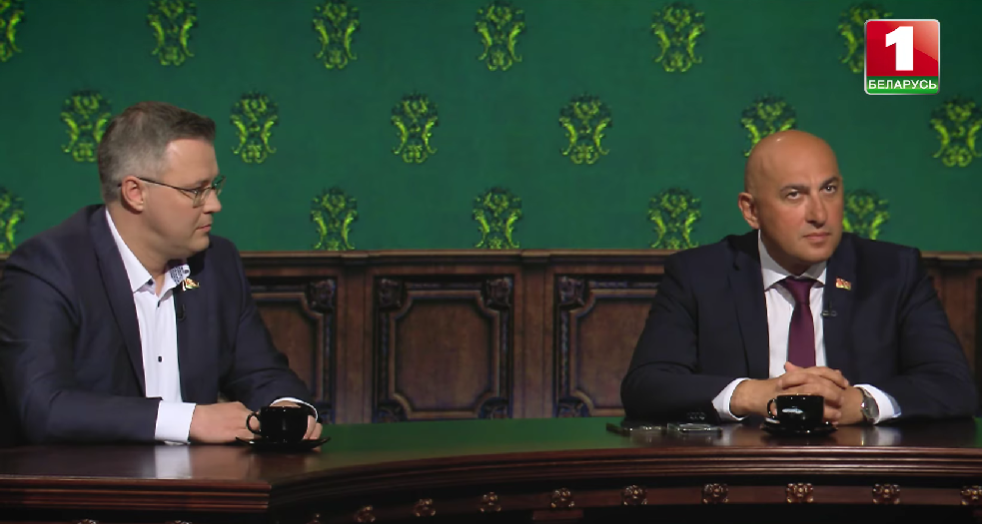Experts on Belarus after USSR collapse and Lukashenko’s contribution in battling all challenges
The thirtieth anniversary of the institution of presidency celebrated this year has become an excellent opportunity to recall what challenges Belarus faced after the collapse of the Soviet Union, and how Aleksandr Lukashenko managed to cope with all of them. In their talk with the Belarus 1 TV channel, experts discussed how the people’s historical choice of 1994 saved the country.

Ivan Eismont, the Chairman of the Belarusian TV and Radio Company, stressed that it is already possible to draw certain conclusions thirty years after those events, especially looking at the situation developing around Belarus: the ‘wealth and luxury’ of the Baltic States, the ‘peace’ of Ukraine, the ‘tranquillity’ in Georgia and Armenia, and so on.
“This usually happens when Soros comes to a country and stays there for long,” Mr. Eismont said. “However, it was different with him in Belarus: he came, promised to change the education system and something more, but got kicked by Aleksandr Lukashenko. As a result, we have not had a war over these 30 years, unlike our neighbours.”
The programme host recalled that, in 1994, he came to Minsk to enter the university and, after graduation, worked in law enforcement agencies. He remembers perfectly well what the standard of living was at that time in the country.
“It was a semi-bandit country, all the main cities were divided between criminal gangs, it was impossible to safely transport goods from the Russian border to the borders with Western countries. Drivers were being killed and robbed. Actually, there were many things of the kind. For example, there was a shift change at customs at 8am, but $5,000 could be found in the employee's socks at 10am already. That was the money that should have been paid in the form of a fee to the Belarusian state, and then distributed among people as salaries, pensions, and so on. We were falling into the abyss, and then Aleksandr Lukashenko won the elections. The support of his candidacy was incredible, and the same situation happened many times later as well,” Mr. Eismont noted.
In 30 years, the President has managed to build a full-fledged sovereign state with all the institutions and attributes – doing that evolutionarily and calmly, without bloodshed and revolutions.

"I would like to recall the theory of English historian Arnold Toynbee who said that any civilisation develops in a ‘challenge-response’ relationship," Oleg Romanov, a member of the House of Representatives, the Chairman of the Belaya Rus party, added. “Our President faced challenges: the USSR collapse, the rupture of foreign economic ties with Russia and other countries in the post-Soviet space, and banditry. Scavengers who want to profit from someone else's grief always emerge in times of turmoil. Crime, devastation in the minds, lack of values reign in such periods, and everyone thinks exclusively of themselves.”
As noted by Mr. Romanov, just one of these challenges could be enough to destroy the country. “Meanwhile, Aleksandr Lukashenko faced dozens of them, but gave an adequate response to each of them,” the expert said. “The situation has been changing from one year to another, since we have been working with people’s real problems. Our President sees the picture objectively, and this is his great value as a statesman. I would also like to mention an absolutely correct move in the 1996 referendum, which aimed to strengthen the presidential republic. It was due to the challenges of the time, and spreading the responsibility across dozens of agencies was a dead end then (and this approach is relevant in our modern times as well). It could mean that everything would fail, since there should always be a decision-making centre. Moreover, that was the mentality of our people: our citizens always appeal to a person – not to an abstract agency, but to a certain individual who can solve their problems. Aleksandr Lukashenko quite rightly felt that Belarus could not follow the lead of Western schemes, but should return to its origins and create a management system that would correspond to both the mentality and logic of the time.”

Continuing the topic, the Dean of the Journalism Department at the Belarusian State University, political expert Aleksei Belyaev recalled that many people aspired to power at that time. According to him, most of those working at Parliament then and performing the functions of the Government had a single desire: to privatise state property, to follow the path proposed by ‘great economist’ Soros: to disrupt the state and destroy state property, thus making the country weaker. “People who were striving to power perceived themselves as temporary workers: they wanted to come, seize a piece for themselves, then go away and hide somewhere. It was absolutely clear to most people at the time. What was Aleksandr Lukashenko doing? He needed power, and it's true. He demanded greater powers for himself, but his purpose was different: he was not fattening his pockets, he was not working like those fleeting birds. He wanted to preserve the state and the existing potential. Do you remember his rather tough economic policy? He put a barrier to privatisation and introduced the right of ‘a golden share’. In market conditions, we could not help but live according to the market situation. We had to pass those economic laws, but it was also necessary to focus on our own specifics at that time,” Mr. Belyaev explained.
The expert recalled that Aleksandr Lukashenko has preserved state-owned enterprises, which today are the beauty and pride of Belarus. “At that time, some people did not understand why that was necessary. They thought those were dying enterprises, which had to be taken out of the state responsibility. There were proposals for each company to have its owner who would restore order. If we had followed that path, there would be nothing today," he said.

In turn, the Chairman of the Board of the Belarusian Union of Journalists, Andrei Krivosheev, noted, “On July 3rd, the Head of the Bulgarian Union of Journalists told me that Belarusians are very modest people. She explained, “You have built a unique political system and model, and you just have no idea how effective it is." Bulgaria has held elections six times in six months, and it still has no normal government. Can you imagine how shocked and stressed people are there? They have to live in conditions of permanent elections for six months, and they have no well-functioning government yet. The Head of the Bulgarian Union of Journalists also noted that it is well seen that the Belarusian state cares about everything. In small, medium-sized Western countries, the concept of the state has been deliberately destroyed: people may die under a fence without medical care if they have no money for paid medicine or no insurance. In turn, we have a unique social model, and the economy is centred round the person. The past thirty years are the history of the Belarusian national state success and, definitely, of our people's President.”
Information Minister Marat Markov added that he was 22 years old when the USSR collapsed. He remembers perfectly well what happened after that. “All economic ties were disrupted, there was a degradation of the economy and, in fact, of the country. Belarus was a unique republic in the Soviet space. It was an assembly shop of the Soviet Union, but everything was lost overnight because of the decisions made against the people’s will. I wish there was a time machine sometimes – so that the most stupid young people, who madly dance on squares and think that they will gain prosperity by doing this, can be sent there for at least a month. I wish them to experience how it feels to take a queue for socks at night, be happy with a piece of sausage and rush after it, pushing aside all others. This situation needs to be felt and experienced, so that there is no desire to repeat it,” he said.
The Information Minister emphasised: Aleksandr Lukashenko has never been alone, there have always been people behind him. “The President has always said that he needs helpers, but he does not need anyone who would separate him from the people. He always spoke directly to Belarusians. This trait has been preserved throughout all these years, and it definitely inspires confidence," Mr. Markov added.



